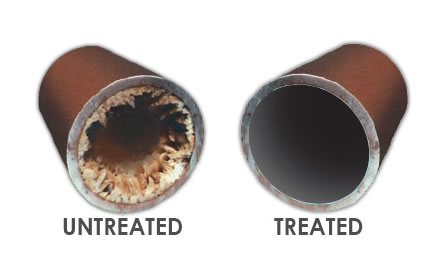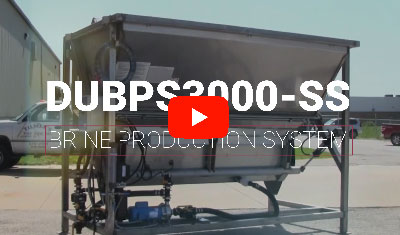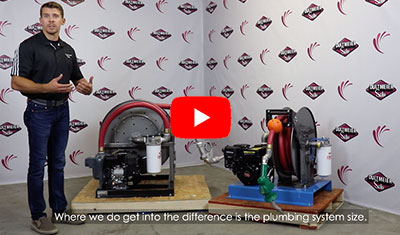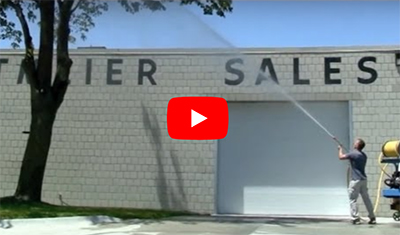Low water hardness and low TDS (Total Dissolved Solids) are critical for proper cleaning and reduction of water spotting in car and truck wash applications. Water hardness is measured in grains of hardness. Typical drinking water can range from 100-250 grains of hardness. However, water hardness under 5 grains is usually best for the most efficient use of detergents or soaps in vehicle cleaning.
A water softener is usually required to get hardness down to zero grains which is necessary to, in turn, get TDS down to zero. The size of the softener required is a function of the quality of the incoming water, as well as, the gallons required in a typical day for a specific facility. Left untreated, high mineral content in a plumbing system can tremendously affect the efficiency of the plumbing system, as well as, reduce the life of pumps, valves, and other equipment.

TDS (Total Dissolved Solids) is the makeup of minerals, salts, metals, etc. that are present in a volume of water. This can include any inorganic element that is present in water other than pure (H20) water molecules. Typically TDS is measured in PPM, (Parts per million). The EPA allows up to 500 PPM for human consumption in water but vehicle washes need to be in the range of 0-50 PPM to rinse and dry without spotting.
Therefore; typical reverse osmosis, spot free rinse vehicle system will produce zero parts per million (PPM) of TDS when the filter/membranes in the system are new. Thin-film Composite or Cellulose Acetate membranes are designed to reduce zero grain water to zero TDS water. As membranes provide the filtering process over time, they will begin to plug or foul. The amount of time for this to occur depends on water usage and flow.
Typical testing will show TDS increasing, with spotting occurring about 40PPM. At this point, membranes should be replaced which will bring the TDS back to zero and the process begins again. Membrane material differs and is specifically designed for tap water, brackish water and seawater. Tap water membranes are used with typical city supplied water.
There are many simple devices available to test for water hardness and TDS to ensure your softeners, spot-free rinse system and filters are operating properly and efficiently. If you have further questions about reducing the amount of total dissolved solids in your business plumbing system give us a call at 1-888-677-5054 or visit us here. Take care!












